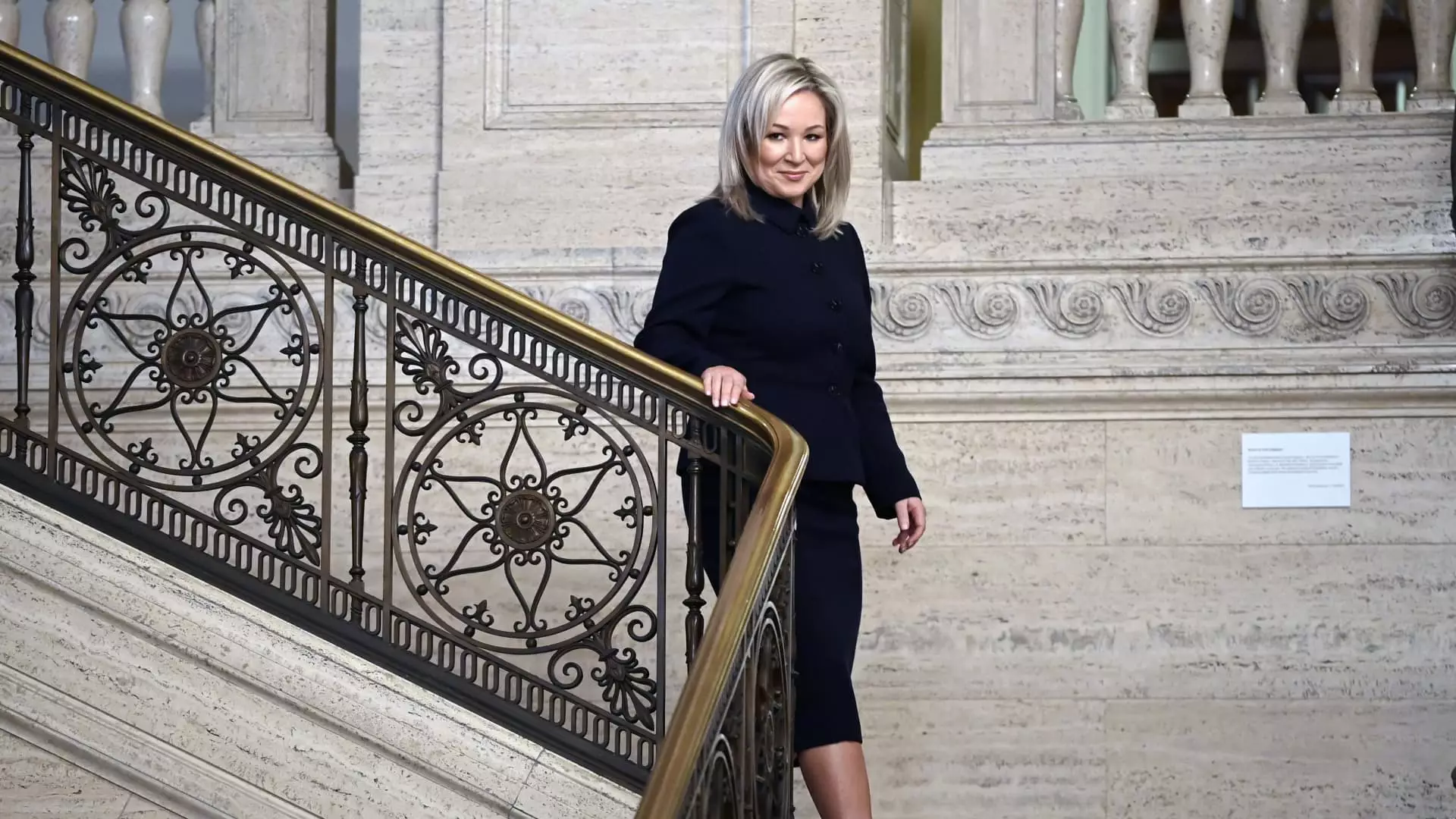Northern Ireland’s political landscape witnessed a momentous occasion on Saturday when the parliament appointed an Irish nationalist, Michelle O’Neill, as the First Minister for the first time in its century-long history. This landmark event not only signified a significant shift in power but also reflected the growing influence of Sinn Fein, a party with a long-standing aspiration for a united Ireland. O’Neill’s appointment came as the rival Democratic Unionist Party (DUP) ended its two-year boycott of power-sharing government, marking a pivotal moment in Northern Ireland’s political trajectory.
Michelle O’Neill’s elevation to the position of First Minister represents a new era for Sinn Fein, as she is part of a new generation of politicians who did not experience firsthand the decades-long violent conflict between Irish nationalists and pro-British unionists. In the past, Sinn Fein, as the former political wing of the Irish Republican Army (IRA), experienced marginalization by the political establishment on both sides of the border. However, the party’s increasing popularity, now extending to the Irish Republic, has cemented its position as a major force in Northern Irish politics.
Addressing the assembly, Michelle O’Neill expressed her commitment to serving all citizens equally and being a First Minister for everyone. Her words embodied a message of unity, seeking to bridge the divide between Irish nationalists and pro-British unionists. Nevertheless, opposition to her appointment was voiced by the Traditional Unionist Voice party, which rejected both the trade deal with the British government and Sinn Fein’s embrace of power-sharing.
While Sinn Fein has emphasized the potential for a united Ireland in recent discussions, the focus for politicians in Northern Ireland remains fixed on addressing pressing issues that affect the daily lives of citizens. The two-year hiatus in power-sharing has exacerbated strains on public services, putting politicians under immense pressure to implement reforms and deliver tangible improvements to people’s lives. Although there is a clear majority in favor of remaining part of the United Kingdom, the British government holds the authority to decide on a unity referendum. Consequently, the prolonged period without a functioning government is likely to stimulate calls for reform to prevent future power-sharing breakdowns.
The general mood within Northern Ireland is one of restlessness and a yearning for change. Citizens, worn out by the political impasse, are increasingly vocal about their demand for progress. Economic concerns formed the centerpiece of Sinn Fein’s campaign in the 2022 Northern Ireland election, reflecting a strategic shift in the party’s messaging. By focusing on everyday issues such as housing and the economy, Sinn Fein has managed to resonate with a broader base of voters.
The appointment of Michelle O’Neill as the First Minister and the subsequent reestablishment of a power-sharing government mark a significant turning point in Northern Ireland’s history. The rise of Sinn Fein has disrupted the prevailing political dynamics and intensified debates surrounding the future of the region. While challenges lie ahead, there is a renewed sense of optimism as Northern Ireland embarks on a new chapter with the potential for progress, unity, and improved livelihoods for its citizens.


Leave a Reply